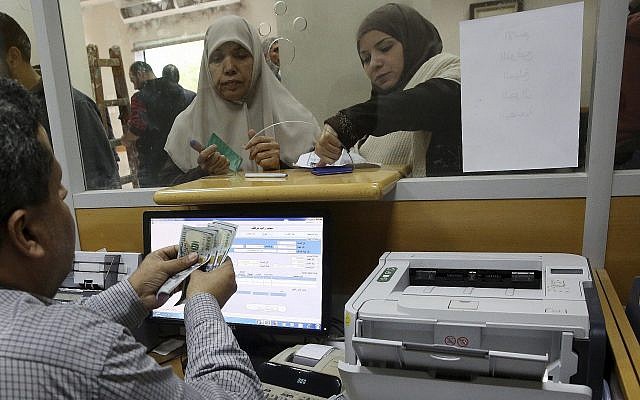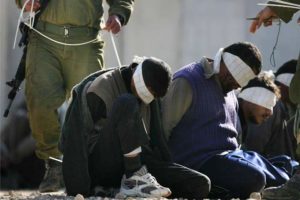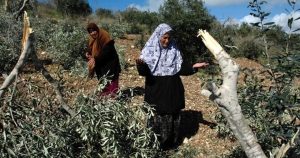Nabil Mattar cannot meet the needs of his family.
Until recently, he sold cellphone accessories on the Gaza market. The restrictions imposed in response to the COVID-19 pandemic left him without income.
“I used to make $ 10 a day,” said Mattar, father of seven children. “That’s an amount that’s too small to be able to save anything. I have not had money to feed my children since I stopped working. ”
The loss affects his sense of self-worth. “You cannot imagine how a father feels to stand helplessly in front of his children,” he said.
Also Read: Death Toll in Gaza Nears 70,000 Amid Ongoing Israeli Aggression
Unemployment is already a big problem before the first case of the new coronavirus confirmed in Gaza in March.
The official unemployment rate in Gaza is 43 percent over the last few months of 2019. According to the Palestinian Central Statistics Bureau, that means more than 208,000 people are unemployed.
A further 130,000 people have now lost their jobs since the pandemic entered the blocked coastal enclave, according to the Gaza Ministry of Economy.
The ministry has estimated that 25,000 people working in hotels, restaurants and coffee shops have been laid off since the lockdown began.
Also Read: UNRWA Warns of Ongoing Destruction and Mass Displacement in West Bank Refugee Camps
Shock
Ibrahim Al-Dali is one of them. He was a waiter at a hotel on the seashore of Gaza City.
“Losing my job is a shock for my family,” he said.
Al-Dali has long been their main breadwinner. With his salary, he has helped his parents and two siblings.
Also Read: Dozens of Settlers Defile Aqsa Mosque Under Heavy Police Protection
His father used to work in Israel, but has been unemployed because of the full blockade imposed in Gaza for the past 13 years.
“It’s difficult for a young man like me to sit at home,” Al-Dali said. “But the most difficult thing is that I can’t help my family anymore.”
Gaza residents undergo Ramadan in a simple way. Usually, restaurants and coffee shops are busy during the Holy Month because many families leave at night to break their fast.
This year, however, the catering sector has almost stopped. Instead of facilitating tourism and recreation activities, hotels are now being used as isolation centers for new corona patients.
Also Read: Hamas Urges Global Intervention to Halt Killings and Abuse Inside Israeli Prisons
The Gaza Ministry of Labor has allocated $ 1 million to help people who have lost their jobs during the pandemic.
Ibrahim Al-Dali, a unemployed servant, submitted a request for assistance of $ 100 on the Ministry’s website. However, his application was rejected on the grounds that he was not married.
In total, the Ministry considers around 40,000 applicants to be eligible to receive cash assistance. However, the fund was only able to help 10,000 people.
The road is empty
Also Read: Israeli Strikes, Home Demolitions Persist in Gaza Despite Ceasefire
Ahmad Younis, a taxi driver, did receive $ 100 in cash assistance, but the amount is very small and could not cover the amount of his lost income.
“The transportation sector is usually very active,” he said. “But when I go in my car lately, the road is almost empty. I got so few passengers that I could barely make ends meet. I am worried, the situation will continue like this for months. It will be a disaster for me. ”
The Palestinian Central Bureau of Statistics estimates that the new coronavirus can make gross domestic product for the West Bank and Gaza to be 14 percent lower in 2020 compared to last year. That means a total loss of around $ 2.5 billion.
Some businesses try to struggle with the challenges created by COVID-19.
Also Read: Israel Destroys Thousands of Olive Trees in Jenin
Several textile companies in Gaza have begun making protective masks, especially for clients in Israel.
The garment sector is once a major player in the local economy, but was devastated when Israel imposed a ban on textile exports in 2007. The ban only eased in 2015, leading to the revival of part of the Gaza clothing trade.
It might be too early to say whether the production of masks will provide a much needed boost to the textile sector.
In any case, such an impetus will not be enough to offset deeper problems in the Gaza economy, problems caused by Israel acting together with the most powerful government in the world (United States). (AT/RE1)
Also Read: Gaza Health Ministry Reports Over 69,000 Killed Since Start of Conflict
Source: The Electronic Intifada
Mi’raj News Agency (MINA)
Also Read: Israeli Occupation Military Kidnaps 32 Palestinians in Major West Bank Operations



































 Mina Indonesia
Mina Indonesia Mina Arabic
Mina Arabic